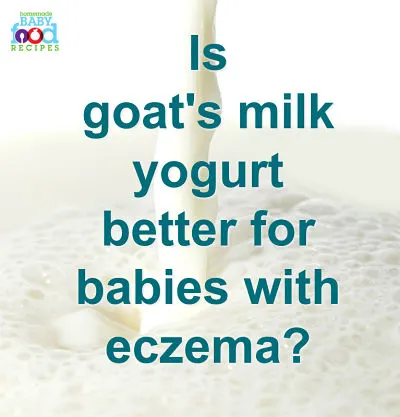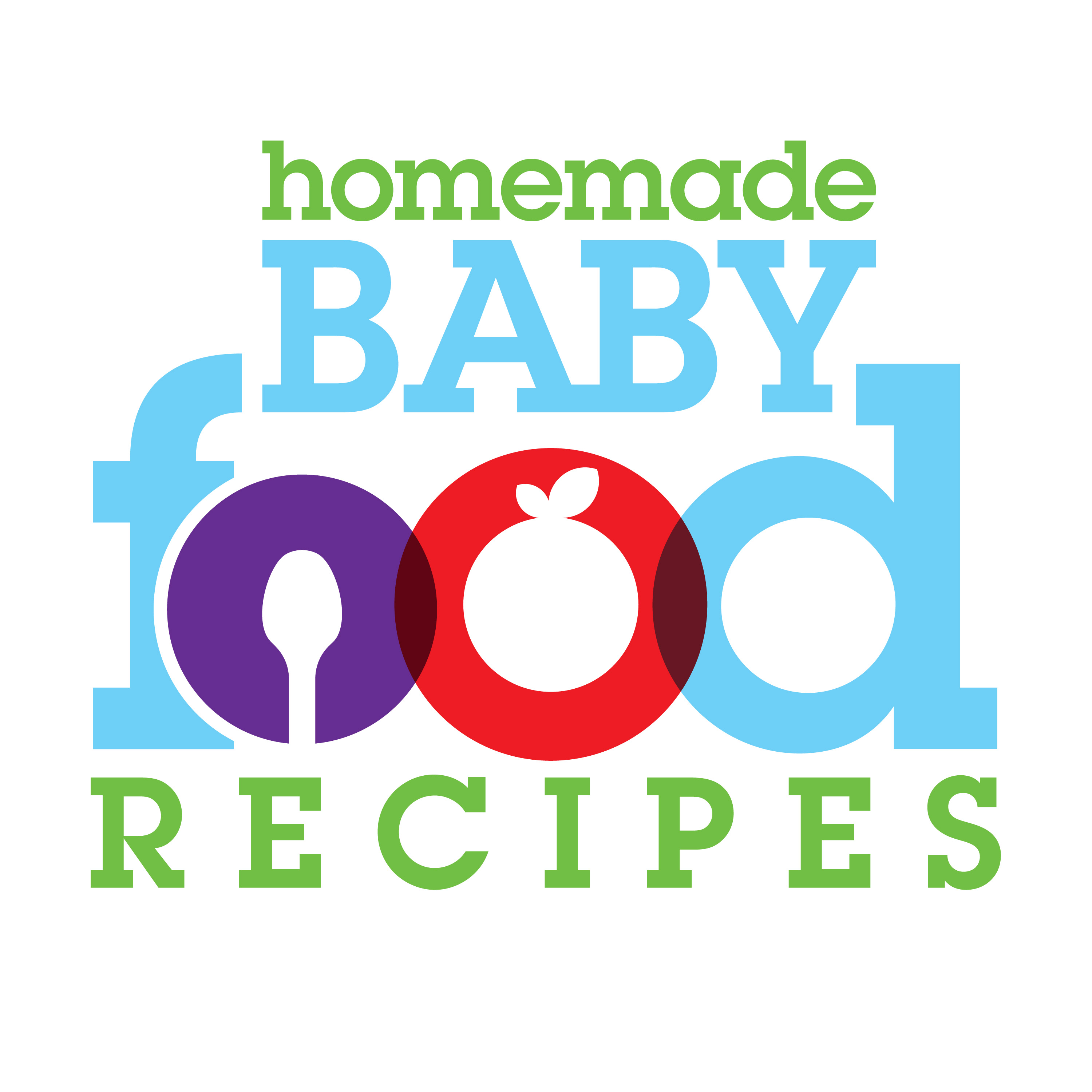Updated: July 11, 2023
We received a message earlier this week from Kathy, the mother of a baby with eczema.
Kathy wondered if it might be a good idea to start her little one on yogurt made with goat’s milk rather than cow’s milk, or whether she should delay yogurt altogether for the first year.
Many parents seem to notice a worsening in their little ones’ eczema symptoms when they are given cow’s milk or products containing cow’s milk, which is why Kathy is being cautious.
Whilst it is not widely accepted by the medical profession that eczema is directly related to food allergy, we often hear from parents that certain foods do seem to make the problem worse.
But does goat’s milk affect babies with eczema in the same way as cow’s milk?

In terms of their chemical make-up, the differences between cow’s milk and goat’s milk are not enormous.
That being said, there is some variation in their composition.
Consequently, SOME babies who react to cow’s milk may react to goat’s milk too – whereas other seem to tolerate goat’s milk far better.
Sources suggest, in fact, that around 40% of children who react to cow’s milk are able to tolerate goat’s milk.
So the answer to Kathy’s question, then, is that a goat’s milk based yogurt may not aggravate her baby’s ezcema – but if he falls in that 60% of children who react to goat’s milk, then it’s possible that it could, indeed, worsen the condition.
If your little one has eczema which seems to be aggravated by dairy products, then it’s a good idea to speak to your doctor about the best time to introduce yogurt and whether or not to try yogurt made with goat’s milk as opposed to cow’s milk.
Please note that neither cow’s milk or goat’s milk are suitable as a main drink before baby’s first birthday.
More information about introducing solids to a baby with eczema
We’d love to hear from you if you have already been down this path with YOUR baby.
If your little one’s eczema symptoms are worsened by cow’s milk, have you found that goat’s milk products have been better tolerated?
Have you ever been advised by a pediatrician to offer goat’s milk products as more suitable alternatives to products made with cow’s milk for a baby with eczema?
Please click below to share your experiences, which may help other parents in the same situation.

jollymom3
Thursday 10th of January 2013
Our nearly one-year-old has a dairy allergy (which I really hope he outgrows), so I have given him So Delicious vanilla cultured cocoanut milk instead of yogurt. It tastes good and has probiotics. I'm not thrilled with the thickeners like carrageenan that this and all other companies seem to put in their alternative dairy products because it seems to bother me, but at least it doesn't seem to bother the baby. Good luck!
Martin Doyle
Monday 26th of April 2010
Kaitlin, I have worked with goats for thirty five years. I would like to give you some good advice - doctors tend to advise goats milk consumption for ezcema. However, having gained knowledge over many years in relation to this skin disease and the use of Goats Milk from my forefathers, in order to treat eczema with goats milk you must apply it externally. It is best to use raw goats milk for this purpose as it contains the natural bacteria which in effect cures eczema. Martin Doyle Herd Keeper Bilberry Goat Herd Waterford City Ireland
Kaitlin
Friday 4th of December 2009
This is interesting because we have been dealing with this topic lately. My daughter just turned one at the beginning of November and as soon as we switched her to whole milk, she had a reaction. I, myself, had the same reaction at 12 months old, too. Her skin turned blotchy, she got a runny nose, she developed red spots all over her body (like dry patches), and she had a continuous a cough (like a tickle in her throat). My mom told me that when this happened to me, she put me on goat's milk. I tried the same with my daughter and it seemed to help a bit, but not completely. She continues to be extremely blotchy and have a runny nose. Her pediatrician suggested we start her on rice milk to see if we notice any change. She also mentioned they don't recommend goat's milk instead of whole milk at age one due to the lack of iron and B12. Rice milk is enriched with those nutrients. Moreover, after being on rice milk nearly a month, we haven't seen any decrease in eczema symptoms; actually, they have gotten worse. Her toes are now affected and have started to peel. She had the same reaction to soy, too! We have changed her shampoos/soaps/detergents to all natural products (hypoallergenic). Now what? I am interested in reading more articles related to this topic.